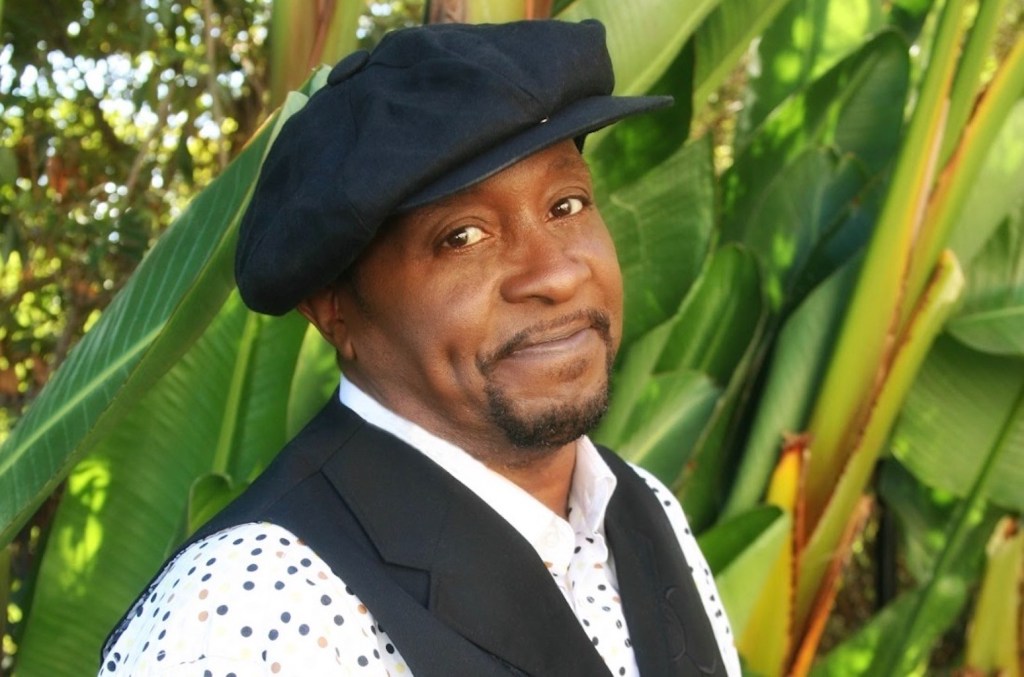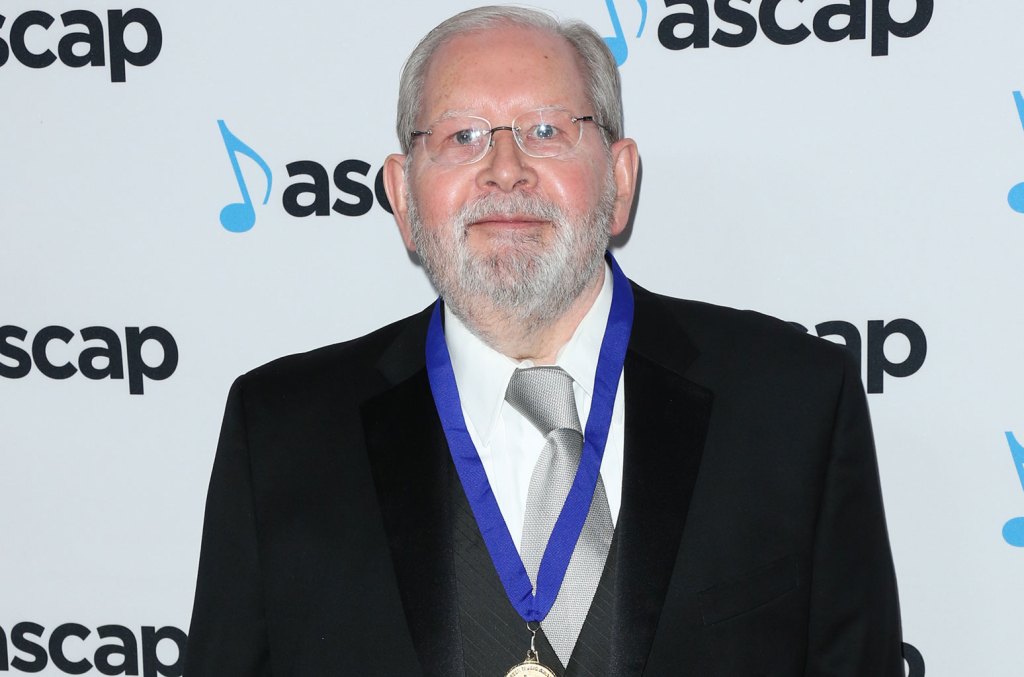obituary
Page: 2
Cavin Yarbrough, half of the 1980s R&B duo Yarbrough & Peoples, has died at the age of 72. The singer-musician-producer passed away on Thursday (June 19) owing to complications from heart disease. “He was the love of my life, my protector. Now he’s my guardian angel,” Yarbrough’s wife and longtime music partner, Alisa Peoples, said […]
Patrick Walden, former guitarist for the British rock band Babyshambles, has died at the age of 46.
The band, fronted by Pete Doherty, announced Walden’s passing in a social media post on Friday (June 20). A cause of death was not disclosed.
“It is with deep regret and sadness that we share the news of Patrick Walden’s death,” the band wrote on Instagram. “We feel very fortunate to have known/loved and worked with him and we kindly ask for respect and privacy during these difficult times.”
The statement was signed by Doherty and fellow band members Mick Whitnall, Drew McConnell and Adam Ficek.
Babyshambles was formed in 2003 by Doherty after his departure from The Libertines due to substance abuse issues. Walden, a London native, joined as lead guitarist, alongside McConnell on bass and Gemma Clarke on drums.
In addition to his guitar work, Walden co-wrote several songs on Babyshambles’ 2005 debut album, Down in Albion, including “Pipedown,” “Loyalty Song” and “F—k Forever,” which peaked at No. 4 on the Official U.K. Singles Chart.
Before joining Babyshambles, Walden played in various bands including Fluid, the Six Cold Thousand and the White Sport. His time with Babyshambles was brief, ending in 2005 amid struggles with drug addiction and a legal case involving his girlfriend that resulted in a brief jail sentence. The charges were later dropped.
Walden was replaced by Whitnall for the band’s sophomore album, Shotter’s Nation, which dropped in 2007. Though he never officially rejoined the group, Walden occasionally performed with Babyshambles at select shows over the years. The band has reunited sporadically during Doherty’s solo performances.
Doherty had previously hinted at a potential reunion tour to mark the 20th anniversary of Down in Albion, though it was unclear whether Walden was expected to be involved.
“It is on the cards,” Doherty told NME in December 2024. “We will get back together and get in a room with the instruments and play through the old songs, then get on stage and do it. But it’s the ‘who’ and the ‘when’ that needs to be worked out. I think we’ll just keep that one on the horizon and deal with that one next year. Before then, I’ve got a new collection of songs which I’m putting out on my own label, which is tidy.”
Ananda Lewis, who had a celebrated run on MTV as a veejay and as the host of shows including Total Request Live and Hot Zone, has died at age 52. News of Lewis’ death was confirmed in a Facebook post by her sister, Lakshmi Emory. In 2020, Lewis revealed that she had been diagnosed with […]
Billy Jones, a longtime figure in New York’s live music scene, has died at age 45. A statement provided to multiple outlets by a spokesman for the club says Jones died on Saturday morning (June 7) due to “a highly aggressive case of glioblastoma,” a form of brain cancer. Jones was the co-founder/owner of Brooklyn’s […]
Jonathan Mayers, co-founder of Superfly Entertainment and the co-creator of iconic festivals including Bonnaroo and Outside Lands, has died. His age and cause of death are unknown at this time.
Mayers grew up an hour outside New York City and attended Tulane University in New Orleans, graduating in 1995. He was first introduced to the music business through his work with famed New Orleans venue Tipitina’s and the long-running Jazz Fest celebration. He co-founded promotion company Superfly in 1996 with Rick Farman, Richard Goodstone and Kerry Black and staged its first concert during Mardi Gras with the Meters, Maceo Parker and Rebirth Brass Band. In 2002, the four men launched and sold out the first Bonnaroo after discovering the perfect festival site an hour outside of Nashville in Manchester, Tenn. Partnering with promoter Ashley Capps of AC Entertainment, agent Chip Hooper of Paradigm and manager Coran Capshaw of Red Light — and securing headliners like Trey Anastasio from Phish and Grateful Dead’s Phil Lesh and Bob Weir — the men created a 70,000-person festival that would become the blueprint for hundreds of other music festivals across the country.
In 2005, Mayers’ Superfly launched Vegoose in Las Vegas with programming at multiplevenues throughout the city. The first festival brought in approximately 37,000 visitors, and Mayers and his team ran the festival for three seasons before opting to shut it down. Mayers would also partner with Another Planet Entertainment in the San Francisco Bay Area in 2008 to launch Outside Lands in San Francisco’s Golden Gate Park. In 2017, Mayers led efforts to partner with Viacom and Comedy Central to produce a large-scale indoor/outdoor comedy festival in San Francisco called Clusterfest that included performances by Kevin Hart, Amy Schumer, Jon Stewart and Trevor Noah.
Trending on Billboard
While working on Clusterfest, Mayers began interfacing with major film and TV rights holders and created a new experience concept allowing fans to “step inside” some of their favorite TV shows on recreated TV sets. Mayers and team licensed rights from shows like Seinfeld, The Office, South Park, Arrested Development, It’s Always Sunny in Philadelphia and The Daily Show to create immersive fan experiences visited by hundreds of thousands of fans. For the show Friends, Mayers led efforts to create pop-up experiences in multiple cities, including New York, Boston and Atlanta.
Despite his success, Mayers’ relationships with his co-founders at Superfly began deteriorating during the COVID-19 pandemic, and in August 2021, he was terminated from his position at the company. In early 2022, Mayers sued Farman, Goodstone and Black and accused them of civil misrepresentation, breach of contract and fraud for allegedly lowballing him for the value of his shares in Superfly. Also named in the complaint was Virgo Investment Group, a California private equity fund; Mayers alleged that its top executive, Jesse Watson, strung him along for months, promising $5 million in financing before firing him last summer. On Jan. 20, 2023, a New York judge dismissed the lawsuit.
After leaving Superfly, Mayers began work on a new project called Core City Detroit which sought to raise money to invest in a “culturally rich neighborhood anchored by a music campus providing world- class services, infrastructure, and housing for local/national artists & industry along with entertainment experiences for the public,” according to an investment deck on the project. Phase 1 of the Core City Detroit project included a drive-in diner by celebrity chef Kiki Louya and the renovation of an old pickle factory into a music production complex.
Mayers’ longtime friend Peter Shapiro, founder of Dayglo Presents and the Brooklyn Bowl, described him as a creative mastermind who had a deep love for live music and a vision for how it would evolve over the next two decades.
“Jonathan was one of the true real visionaries of the modern concert world and one of the core minds behind Bonnaroo,” Shapiro tells Billboard. “Modern-day festivals are all in some way built off of his vision.”
Company officials at Another Planet Entertainment issued a statement to Billboard following Mayers’ passing. “Jonathan was a bright light, always pushing new and creative ideas in the entertainment space,” they said. “He was a visionary who was integral in the founding and the spirit of Outside Lands. Everyone in the Another Planet family will miss him dearly.”
Wayne Lewis, a founding member of the R&B group Atlantic Starr, has died at the age of 68.
The band confirmed his passing in a social media post on Friday (June 7), noting that the musician died on Thursday. No cause of death has been disclosed.
“It’s with great sadness we have to post the passing of Wayne Lewis on June 5, 2025,” Atlantic Starr wrote on Facebook. “Please keep the family in your prayers and respect their privacy #waynelewis #restinpeace #flyhigh Sunrise 4/13/1957 Sunset 6/5/2025 #restinpeaceWayne.”
Lewis served as a vocalist and keyboardist for Atlantic Starr, which he co-founded in 1976 in White Plains, N.Y., alongside his brothers David Lewis (vocals, guitar) and Jonathan Lewis (keyboards, trombone), as well as drummer Porter Carroll Jr., bassist Clifford Archer and percussionist-flutist Joseph Phillips.
Other early members included lead singer Sharon Bryant, trumpeter William Sudderth III and saxophonist Damon Rentie. Bryant and Rentie were later replaced by Barbara Weathers and Koran Daniels, respectively.
Atlantic Starr became a fixture in R&B throughout the late 1970s and 1980s. The group signed with A&M Records (and later to Warner Bros. Records, among other labels), releasing their self-titled debut album in 1978, followed by their sophomore effort, Straight to the Point, the next year.
The band achieved its first top 10 hit on Billboard’s Hot R&B/Hip-Hop Songs chart with “Circles” (No. 2) from the 1982 album Brilliance. Their biggest commercial success came in 1987 when “Always,” from 1986’s All in the Name of Love, reached No. 1 on both the Billboard Hot 100 chart and Hot R&B/Hip-Hop Songs.
Atlantic Starr earned a total of three top 10 hits on the Hot 100 and 11 top 10s on Hot R&B/Hip-Hop Songs. “My First Love” in 1989 was their only other No. 1 on the latter chart.
In recent years, Atlantic Starr continued to perform with Lewis and current members Jonathan Lewis, Melessa Pierce and Shammah Carter. The group’s most recent album, Metamorphosis, was released in 2017.
Following the announcement of Lewis’ death, fans flooded social media with heartfelt tributes and condolences.
“His band gave my generation so much listening pleasure,” one fan wrote. Another shared, “Nooooo I am devastated seeing this. My condolences to all family and friends.” A third commenter added, “A great songwriter. Atlantic Starr was better once he became leader. He will be missed.”
Renée Victor, the veteran movie and TV actress who charmed audiences around the world as the voice of wise and protective Abuelita Elena in Pixar’s 2017 Day of the Dead musical comedy Coco has died at 86. Victor died at her home in Sherman Oaks, CA on Friday night due to lymphoma, a representative confirmed to the New York Times.
Explore
Explore
See latest videos, charts and news
See latest videos, charts and news
Though her long career stretched back to 1980s, when she scored the first of a series of small roles in TV shows including Scarecrow and Mrs. King and Matlock, and picked up in the 1990s with appearances in films including The Apostle, The Prophecy II and My Brother the Pig, it was her role as the strong-willed Abuelita (grandmother) in Coco that made her an international superstar late in life. The colorful story of a a 12-year-old boy in Mexico who is magically transported to the land of the dead grossed more than $800 million across the world and had Victor sharing billing with stars including Gael García Bernal, Benjamin Bratt, Edward James Olmos and Alanna Ubach.
Coco‘s studio, Pixar, paid tribute in an Instagram post that read, “We are heartbroken to hear of the passing of Renée Victor, the voice Abuelita in Coco and an incredible part of the Pixar family. We will always remember you.”
Trending on Billboard
Victor was born in San Antonio, TX on July 25, 1938 and made her acting debut at 10 in a San Antonio production of the opera Carmen, according to her IMDb bio. She later moved to Las Vegas in the 1960s, performed alongside musicians Xavier Cugat and Perez Prado and fronted a popular musical duo with her husband, Ray Victor, “Ray and Renée,” from 1963-1973.
She worked as a singer/dancer at the Stardust Hotel and also performed on the stage in Europe, Latin America and Australia before taking on hosting duties in the early 1970s on KTLA Los Angeles’ talk show Pacesetters, which focused on the Chicago movement.
In addition to her acting gigs, Victor also served as a translator-interpreter for the 1984 Summer Olympics in Los Angeles, translated the Nutcracker Suite into Spanish for the BBC and narrated La Ofrenda — The Day of the Dead for an entry in the Los Angeles Film Festival, as well as recording jingles for RC Cola and Twin Dragon Chinese Cookies.
She first broke into acting in the mid-1980s with brief roles in Hotel, Masquerade and the George Burns Comedy Week, continuing her run on the small screen into the 1990s with spots on The Parent ‘Hood, The Tony Danza Show and Team Knight Rider, among many other credits. After a six-episode run on ER in 2004, Victor landed her longest TV run as housekeeper Lupita in Weeds, which ran from 2005-2012. She also had long runs on the action series Snowpiercer and With Love, most recently appearing as Inez in the ABC family drama A Million Little Things.
Her film career continued apace in the 2000s as well, with appearances in A Night in Old Mexico and Paranormal Activity: The Marked Ones, before scoring her breakout role as the firm, but loving grandmother in the Oscar-winner Coco, which featured an all-Latin cast.
In a tribute post, her daughter Margot wrote, “She was dignity and beauty till the end. I am shattered, but I celebrate the end of her elegant and defiant battle with illness these last couple of years. She would never allow anything to keep her down. All my life she’s been a force of nature, a world of fun, sharp wit with boundless talents and energy. hroughout her long life, her ability to reach any goal against odds was formidable. She was and will forever remain my hero and inspiration. She was my closest friend who’s awe and support of my endeavors was madness, but I know she is happy where she is now, while still by my side.”
Victor was excited in March about the news that a Coco sequel was set to hit theaters in 2029. “It was my great pleasure and experience working with the incredibly talented [director] Lee Unkrich and [co-director] Adrian Molina! We get to do it again!” she wrote on Instagram. “This is what we’ve all been waiting for! I’m so excited! Coco shared a Mexican tradition that is now celebrated around the world in unity. An amazing amount of work and talent goes into the creation of this unique film.”
Alf Clausen, the Emmy-winning composer whose music provided essential accompaniment for the animated antics of The Simpsons for 27 years, has died.
His daughter Kaarin Clausen told The Associated Press that Alf Clausen died Thursday (May 29) at his home in Los Angeles after struggling with Parkinson’s disease for about a decade. He was 84.
Clausen, who also scored TV series including Moonlighting and Alf (“no relation,” he used to joke) was nominated for 30 Emmy Awards, 21 of them for The Simpsons, winning twice.
Al Jean, an early Simpsons writer who was one of the key creative figures on the show in the 1990s, said in a post on X Friday that “Clausen was an incredibly talented man who did so much for The Simpsons.”
Trending on Billboard
While Danny Elfman wrote the show’s theme song, Clausen joined the Fox animated series created by Matt Groening in 1990 and provided essentially all of its music until 2017, composing nearly 600 scores and conducting the 35-piece orchestra that played it in the studio.
His colleagues said his music was a key component of the show’s comedy, but Clausen believed the best way to back up the gags of Homer, Marge Bart and Lisa was by making the music as straight as possible.
“This is a dream job for a composer,” Clausen told Variety, which first reported his death, in 1998. “Matt Groening said to me very early on, ‘We’re not a cartoon. We’re a drama where the characters are drawn. I want you to score it like a drama.’ I score the emotions of the characters as opposed to specific action hits on the screen.”Groening, in a 1996 interview, called him “one of the unacknowledged treasures of the show.”Clausen was born in Minneapolis and raised in Jamestown, North Dakota. He graduated from the Berklee College of Music in 1966, and moved to Los Angeles seeking a career in music.In the 1970s he was a musical director on several TV variety shows including Donny & Marie.
Clausen worked as an orchestrator for composer Lee Holdridge in his scores for 1980s films including Splash and The Beastmaster.
It was Holdridge who first got the composing job on Moonlighting, the late-’80s ABC rom-com detective series starring Bruce Willis and Cybil Shepherd, but he handed the gig off to Clausen, who would get six Emmy nominations for his music on it.
Clausen won his Emmys for The Simpsons in 1997 and 1998 and also won five Annie Awards, which honor work in animation in film and television.
He was fired from The Simpsons in a cost-cutting move in 2017, to the outrage of his collaborators and fans. He sued over his dismissal.
Clausen is survived by his wife, Sally; children Kaarin, Scott and Kyle; stepchildren Josh and Emily, and 11 grandchildren.
Ronald Fenty, the father of Rihanna, has reportedly died at the age of 70.
Fenty passed away following a brief illness, according to Starcom Network News, a radio station based in Rihanna’s native Barbados. The official cause and exact date of death have not yet been disclosed. Sources told the outlet that he was surrounded by family at the time of his passing.
Billboard has reached out to Rihanna’s representatives for comment.
Explore
Explore
See latest videos, charts and news
See latest videos, charts and news
On Wednesday (May 28), Rihanna’s younger brother, Rajad Fenty, was photographed arriving at Cedars-Sinai Medical Center in Los Angeles. TMZ reports that the singer was also in the vehicle but was not visible in the photos.
Rihanna — who is currently expecting her third child with A$AP Rocky — had a complicated relationship with her father over the years. The two were estranged for a period before eventually making amends.
After Rihanna (born Robyn Rihanna Fenty) was assaulted by then-boyfriend Chris Brown in 2009, Fenty spoke publicly about the incident without her consent. In a 2011 interview with Vogue, the singer expressed her disappointment.
“You grow up with your father, you know him, you are a part of him, for goodness’ sakes!” she said at the time. “And then he does something so bizarre that I can’t begin to wrap my mind around it.”
In a 2012 interview with Oprah, Rihanna said she had repaired her relationship with her father, who she had described as being violent growing up. In 2019, however, she filed a lawsuit against him and his business partner, Moses Perkins, accusing them of attempting to profit off her name by launching a company called Fenty Entertainment. She alleged they misled investors by falsely claiming she was involved in the venture. Rihanna dropped the lawsuit shortly before it was set to go to trial in 2021, according to the BBC.
Fenty shared three children — Rihanna, Rajad and Rorrey — with his ex-wife, Monica Braithwaite. The couple divorced in 2002. The family was raised in Bridgetown, Barbados, where Rihanna lived until she moved to the U.S. at age 16. He also had three children from previous relationships: daughters Samantha and Kandy, and son Jamie, People reports.
Dan Storper, the co-founder and CEO of Putumayo World Music, died on Thursday (May 22) at 74, just two days after his birthday. Sources confirm that he passed peacefully at home in New Orleans, surrounded by family, after a battle with pancreatic cancer.
Jacob Edgar, founder of the label Cumbancha and Storper’s longtime friend and colleague, shared a heartfelt statement with Billboard Español: “Just three days ago, I posted birthday wishes to Dan Storper, the founder of Putumayo World Music and my colleague and friend for nearly 30 years. I knew then that Dan was in his last days, but I couldn’t imagine a world without him. He passed away yesterday after a battle with pancreatic cancer.”
Edgar, who began working with Storper in 1998 after being offered what he called “the dream job no one could dare dream of,” described the late visionary as “an exceptional human,” he wrote. “Funny, energetic, passionate, micromanaging, and compulsive. A workaholic to the extreme. He could drive you crazy, but you loved him anyway because his heart was in the right place, and he was a good soul.”
In 2023, the globetrotting entrepreneur marked 30 years of his groundbreaking label.
But Storper’s journey with Putumayo began long before the label existed. Originally launched in the 1970s in New York as a store selling handcrafted goods and musical finds from his travels in Latin America, Africa, India, and beyond, the shop gradually shifted its focus to music. By 1993, it had transformed into Putumayo World Music, a record label dedicated to curating global sounds for a wider audience, co-founding it with Michael Kraus.
The label became an international success, celebrated for its uplifting and culturally diverse compilations. Known for its signature brightly illustrated album covers and expertly sequenced playlists, Putumayo invited listeners to embark on musical journeys across continents, introducing many to the rhythms, traditions, and languages of faraway lands. Storper’s leadership helped bridge cultural divides through the universal language of music.
In an interview with Billboard Español in 2023, Storper reflected on what he saw as Putumayo’s mission. “I look back with a certain measure of pride at the fact that we’ve really introduced so many people to music that they were not familiar with — whether it be Latin, African, Caribbean, European, and more,” Storper said at the time, as he reflected on his company’s three-decade legacy. He also mentioned that Carlos Santana met several African bands through the Putumayo catalog that the guitarist later ended up collaborating with.
Storper also spoke fondly of how the label crafted its signature compilations. “Putumayo’s strength is not only selecting some great songs with that human touch, but putting together a sequence to take you on a musical journey, and as we say, it’s guaranteed to make you feel good,” he added.
Even as his health declined, Storper’s commitment to preserving global music remained unwavering. This April, he and Edgar donated their shared archive of 37,000 CDs — a collection built over more than 30 years — to the Harvard Music Library and the ARChive of Popular Music. “He and I listened to almost every one of those albums and scrawled notes over most of them marking out the tracks we thought had a chance to make into a Putumayo collection someday. I’m glad to know that legacy will be preserved,” said Edgar.

 State Champ Radio
State Champ Radio 







